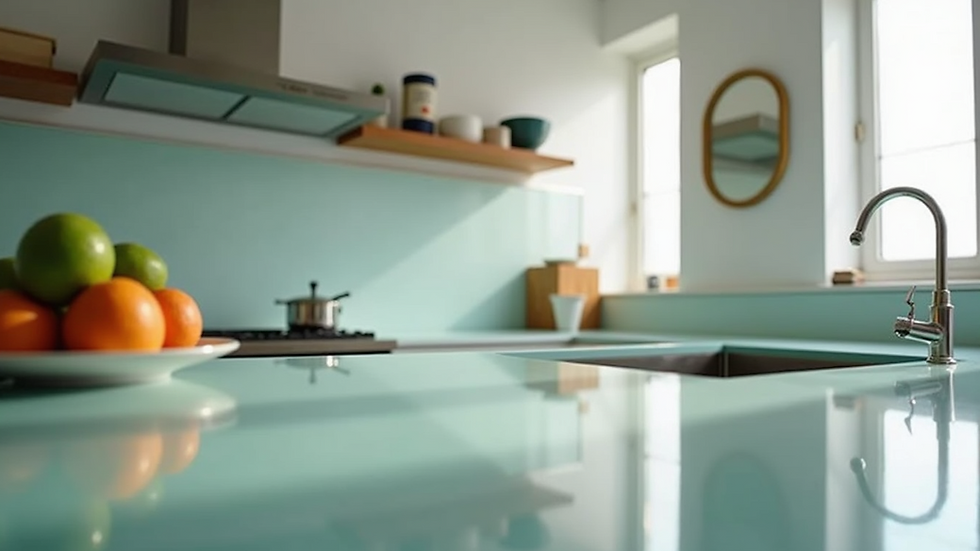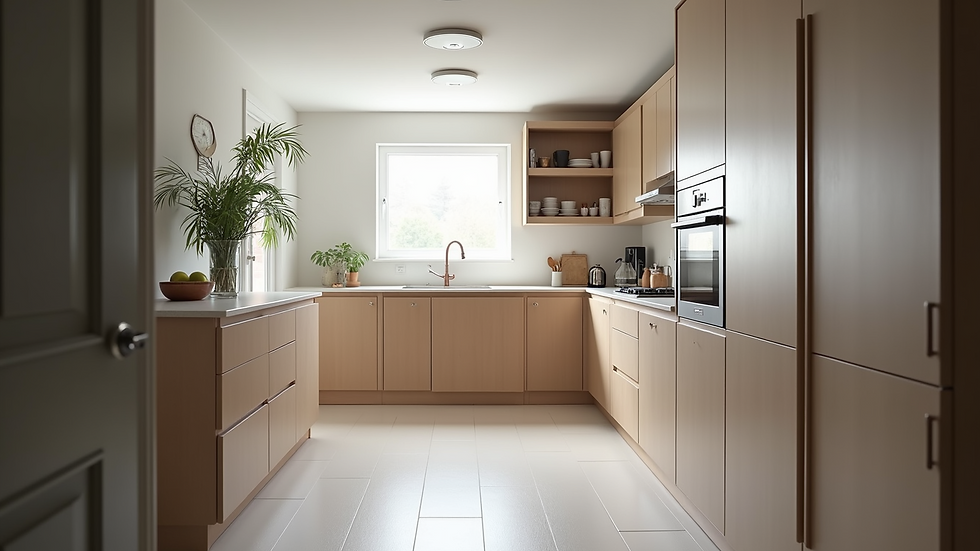Renovations with Ethical Sourcing: DC Projects Showcase
- Chesway Slabbert

- Aug 4, 2025
- 5 min read
In recent years, the conversation around sustainability has grown louder. People are becoming more aware of the impact their choices have on the environment. This shift is especially evident in the world of home renovations. Homeowners in Washington, D.C. are increasingly looking for ways to make their renovations not only beautiful but also ethical. This blog post will explore some exciting renovation projects in D.C. that prioritize ethical sourcing.
Ethical sourcing means choosing materials and products that are produced in a way that is fair to workers and the environment. It involves selecting items that are sustainable, recycled, or locally sourced. This approach not only benefits the planet but also supports local economies.
In this post, we will highlight several D.C. renovation projects that exemplify ethical sourcing. We will look at the materials used, the design choices made, and the overall impact of these projects.
The Importance of Ethical Sourcing
Before diving into specific projects, it is essential to understand why ethical sourcing matters.
Environmental Impact: Traditional sourcing often leads to deforestation, pollution, and waste. Ethical sourcing aims to minimize these effects.
Supporting Local Economies: By choosing local materials, homeowners can support local businesses and artisans. This helps to strengthen the community.
Health Benefits: Many ethically sourced materials are free from harmful chemicals. This can lead to healthier living spaces.
Social Responsibility: Ethical sourcing often involves fair labor practices. This means that workers are treated well and paid fairly.
By focusing on these aspects, homeowners can make a positive impact through their renovation choices.
Project 1: The Green Home Transformation
One standout project in D.C. is the Green Home Transformation. This renovation focused on creating a sustainable living space while maintaining the home's historical charm.
The homeowners chose reclaimed wood for their flooring and beams. This wood was sourced from old barns and buildings, giving the home a unique character.
Additionally, they installed energy-efficient windows. These windows not only reduce energy costs but also minimize the home's carbon footprint.
The kitchen features countertops made from recycled glass. This choice adds a modern touch while being environmentally friendly.

The Green Home Transformation is a perfect example of how ethical sourcing can enhance both aesthetics and sustainability.
Project 2: The Urban Oasis
Another impressive renovation is the Urban Oasis project. This home was transformed into a green sanctuary in the heart of the city.
The owners prioritized native plants in their landscaping. Native plants require less water and maintenance, making them a sustainable choice.
For the exterior, they used low-VOC (volatile organic compounds) paint. This type of paint is better for indoor air quality and reduces harmful emissions.
Inside, the Urban Oasis features furniture made from sustainably harvested wood. This choice supports responsible forestry practices.
The result is a beautiful home that blends seamlessly with its natural surroundings.
Project 3: The Historic Revival
The Historic Revival project showcases how ethical sourcing can be integrated into a renovation of an older home.
The owners wanted to preserve the home's historical features while updating it for modern living. They chose to restore original hardwood floors instead of replacing them. This decision not only saved resources but also maintained the home's character.
For new additions, they selected materials that matched the original style. This included using locally sourced brick for an extension.
The kitchen was updated with energy-efficient appliances. These appliances reduce energy consumption and lower utility bills.
The Historic Revival project demonstrates that ethical sourcing can coexist with preserving history.
Project 4: The Minimalist Retreat
The Minimalist Retreat is a project that emphasizes simplicity and sustainability. The homeowners wanted a clean, modern aesthetic while being mindful of their environmental impact.
They opted for a minimalist design, which naturally reduces material use. The walls are painted with eco-friendly paint, ensuring a healthy indoor environment.
Furniture was sourced from local artisans who use sustainable practices. This not only supports the local economy but also adds a unique touch to the home.
The landscaping features a rain garden, which helps manage stormwater runoff. This is an excellent example of how ethical sourcing can extend beyond the home itself.
Project 5: The Family-Friendly Eco Home
The Family-Friendly Eco Home is designed with both sustainability and comfort in mind. The owners wanted a space that would be safe for their children while being environmentally responsible.
They chose non-toxic materials for all renovations. This includes everything from flooring to paint.
The home features solar panels, which provide renewable energy. This not only reduces the family's carbon footprint but also saves money on energy bills.
The backyard is designed as a play area with natural materials. This creates a safe space for children to play while being kind to the environment.
Tips for Ethical Renovations
If you are considering a renovation, here are some tips to keep in mind for ethical sourcing:
Research Local Suppliers: Look for local businesses that prioritize sustainable practices.
Choose Reclaimed Materials: Reclaimed wood, bricks, and other materials can add character while being eco-friendly.
Opt for Energy-Efficient Products: Invest in appliances and fixtures that save energy and water.
Consider Non-Toxic Options: Look for paints, finishes, and materials that are free from harmful chemicals.
Support Local Artisans: Whenever possible, choose furniture and decor made by local craftsmen.
By following these tips, you can make your renovation project more sustainable and ethical.
The Future of Renovations in D.C.
As more homeowners in D.C. embrace ethical sourcing, the future of renovations looks promising.
The trend is not just about aesthetics; it is about making responsible choices that benefit the community and the environment.
With each project, homeowners are setting an example for others. They are showing that it is possible to create beautiful spaces while being mindful of the planet.
As awareness grows, we can expect to see even more innovative projects that prioritize sustainability.
In the end, ethical sourcing is not just a trend; it is a movement towards a better future.
By choosing to renovate with care, homeowners can create spaces that reflect their values.
Every choice matters, and together, we can make a difference.
So, whether you are planning a small update or a major renovation, consider the impact of your choices.
Your home can be a reflection of your commitment to sustainability and ethical practices.
Let’s continue to support projects that prioritize ethical sourcing and inspire others to do the same.
The journey towards a more sustainable future starts with each of us.
By making informed choices, we can create homes that are not only beautiful but also kind to the planet.
Let’s embrace this movement and make our renovations count.




Comments